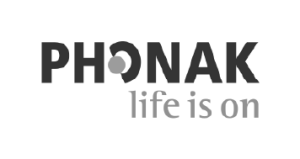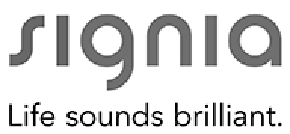Adult Hearing Assessment
Hearing loss often sneaks up gradually, affecting daily interactions and experiences. It can strain relationships, impact mental well-being, and diminish overall quality of life. By getting a hearing test, you can catch potential issues early and take steps to preserve your auditory health. Early detection opens the door to addressing hearing challenges and enjoying clearer communication and a fuller life.

Are You Experiencing Hearing Loss?
- Do you often ask for repetition?
- Do people seem like they are mumbling these days?
- Do you have trouble understanding women’s or children’s voices?
- Do you have difficulty hearing over the phone?
- Do you struggle to hear in noisy environments, meetings, or group get-togethers?
- Do others comment that you turn the television up too loud?
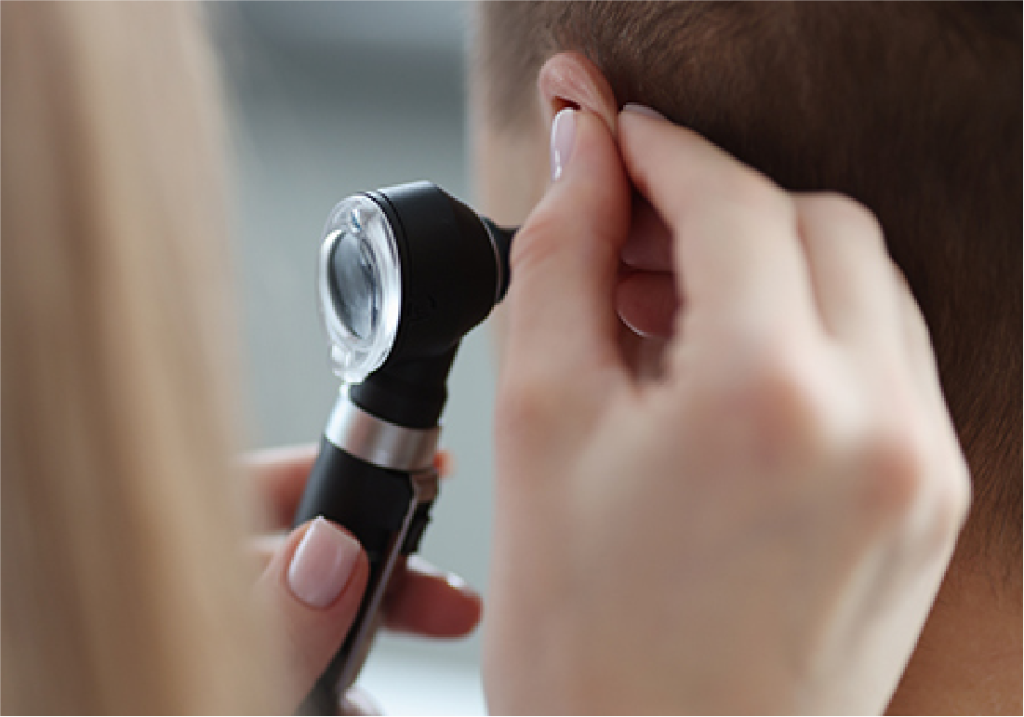
What Happens at a Hearing Test?
First, your Audiologist will ask questions about your general health and hearing history. They will take a good look in your ears to see if there are any obstructions in your ear canal that might affect your hearing. If you wish, you can also have a look in your own ear canals displayed on-screen with our video otoscope. Once your hearing test is completed, your Audiologist will sit with you and review the results.
Tympanometry
Tympanometry is a diagnostic test used to assess the health and functioning of the middle ear. It involves placing a small probe or earpiece into the ear canal, which creates a seal. The instrument then varies air pressure in the ear canal while measuring the movement of the eardrum in response to these pressure changes. Tympanometry provides valuable information about the mobility of the eardrum. It is particularly useful in identifying conditions such as middle ear fluid, eustachian tube dysfunction, and other middle ear problems.
Pure Tone Audiometry
Pure tone audiometry is a standard hearing test used to assess an individual’s hearing sensitivity and determine the extent and nature of any hearing loss. During this test, the patient wears foam earbuds and is exposed to a series of pure tones or beeps at different frequencies and volumes. The patient signals when they can hear the tones by pressing a buton or raising their hand. Bone conduction audiometry may also be used, where vibrations are applied directly to the skull behind the ear to evaluate inner ear function. The audiologist records the patient’s responses on an audiogram, a graph that displays the softest sounds the individual can hear at different frequencies. This audiogram provides critical information about the type and degree of hearing loss, helping the audiologist diagnose the nature of the hearing impairment and recommend appropriate interventions.
Speech Audiometry
Speech audiometry assesses an individual’s ability to hear and understand spoken words at different volume levels in quiet and in noise. During the test, the patient listens to a series of recorded speech stimuli, such as words or sentences. The audiologist may increase or decrease the volume of the target speech or the background noise and assess how accurately the individual can repeat what they hear. Speech audiometry is valuable for assessing how well an individual can understand speech in real-world situations and is used in conjunction with pure tone audiometry to provide a comprehensive evaluation of hearing abilities.
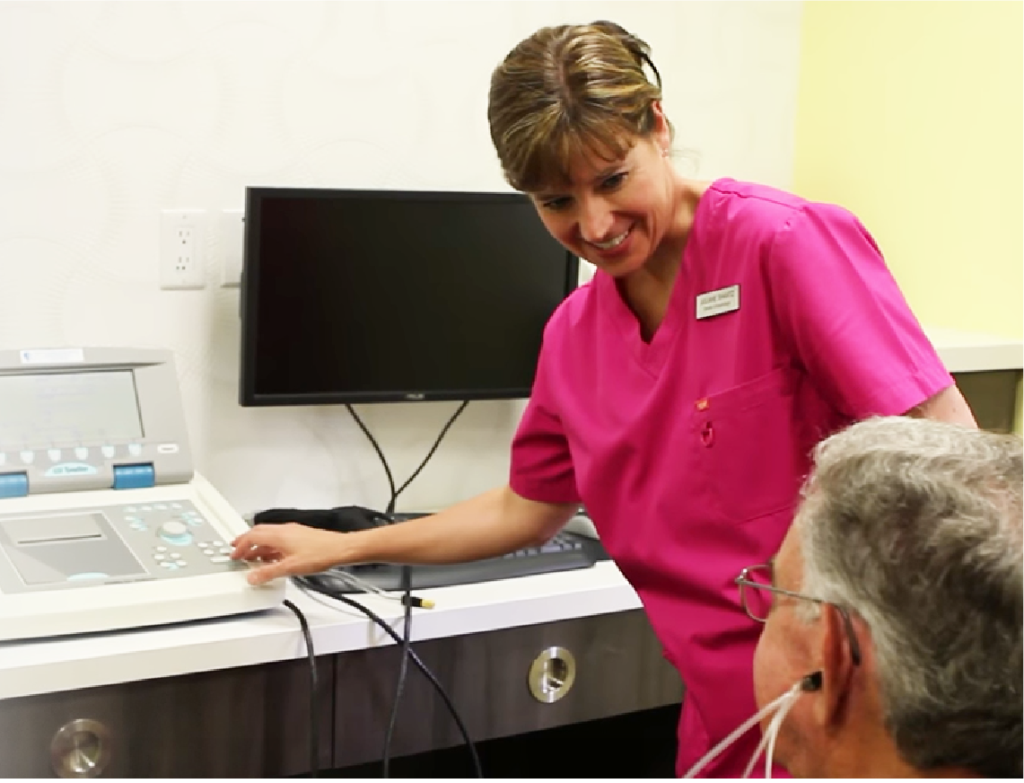
What if I have Hearing Loss?
If your test reveals hearing loss, your audiologist will advise you on treatment options and support any medical referrals that may be required. If you and your Audiologist decide that hearing aids could help you, your audiologist will guide you through the different styles, brands and technologies available.
While many people know at least a litle bit about hearing aids, your Audiologist may also recommend other assistive listening devices such as amplified telephones or television systems, remote microphones or FM systems for hearing in noise, and flashing alert systems or vibrating alarm clocks.

Bring a loved one to your appointment
The most important thing we use our hearing for is communication, and communication is a two person (or more!) activity. We encourage you to bring someone with you to your appointment. It is not uncommon for a friend or family member to notice things that you miss when it comes to your hearing loss. They may also be helpful in identifying what listening situations are more or less difficult for you. If they are a frequent communication partner, it may be just as important for them to understand your hearing loss as it is for you to understand it. Untreated hearing loss can frequently cause misunderstanding or frustration in interpersonal relationships. Finally, if you do have a hearing loss there is a lot of new information to learn! Having someone with you can help.
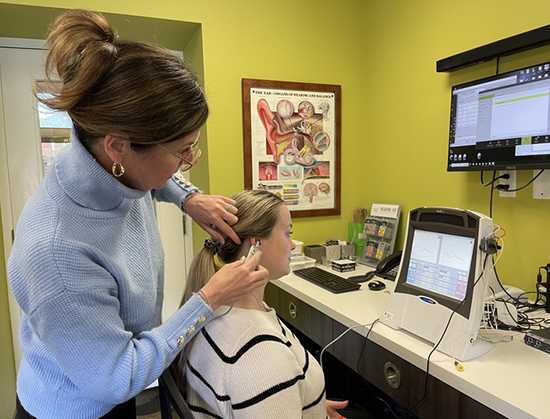
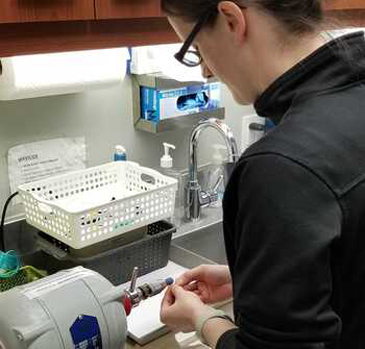
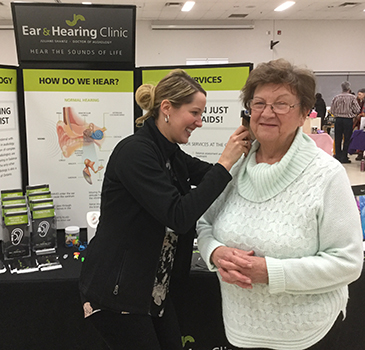
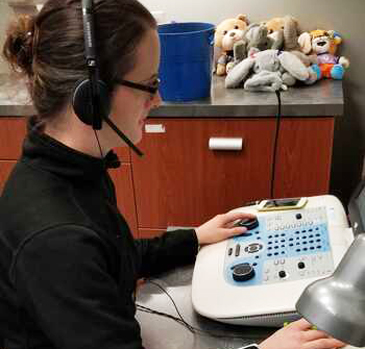
Book Your Hearing Health Check Appointment
Book your appointment by calling or texting 1-833-669-4425.

